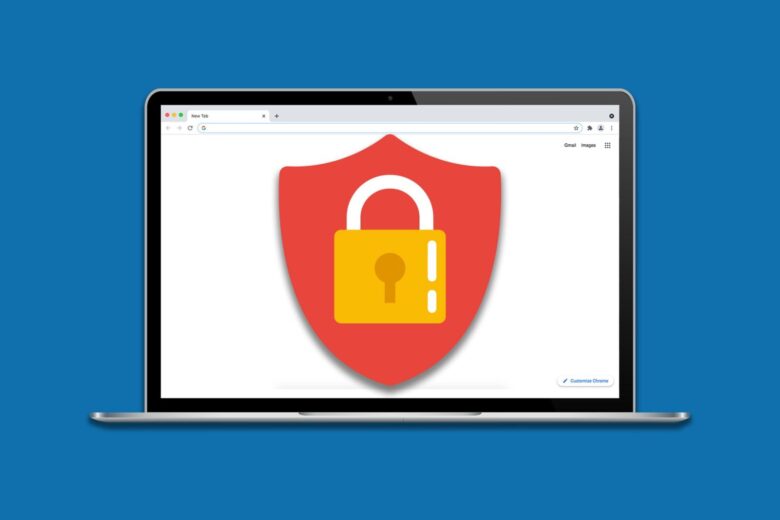Just as the advent of decentralized platforms began a new era of digital governments and digital economies, the rise of Web 3.0 heralds a new age of online security, especially for businesses.
While the focus on owning digital assets and information characterizes Web 3.0, a central question arises: Who ensures the safety of these digital resources?
The answer lies in the use of effective online security measures, and this is where web filtering emerges as a potent tool. As Titan HQ says, “The reduced security staff, monitoring and mitigation infrastructure, and lack of cybersecurity training make small businesses a profitable target for cyber-criminal groups.”
A New Frontier for Business Safety

Web filtering serves as a form of digital governance over the business’s online presence, much akin to how blockchain technology provides a level of decentralized security over digital transactions and assets. Think of it as an IT ecosystem designed to protect your business from online threats.
In the digital landscape, where cyber threats abound, web filtering functions as a regulatory body ensuring safe browsing and protecting sensitive information. By blocking access to risky websites, web filtering acts as an immune system for your online business operations.
The Benefits of Web Filtering

To comprehend the importance of web filtering, we must examine the benefits it brings to businesses operating in the age of Web 3.0.
Reduced Risk of Cyber Threats: The prime advantage of web filtering is the ability to significantly reduce cyber threats. It acts as a barrier between your business’s sensitive data and potential cyber-attacks, phishing attempts, or data breaches.
Increased Productivity: By limiting access to non-work-related sites, businesses can ensure higher productivity levels from their employees. This is especially important in the era of remote work, where distractions are abundant.
Legal Liability Protection: In certain cases, employees may unintentionally download copyrighted materials, leaving your business legally liable. Web filtering can prevent access to such websites, reducing legal risk.
Improved Network Performance: By filtering web content, you can improve the speed and performance of your network. This can significantly enhance your team’s efficiency and the overall user experience for your customers.
Navigating the Challenges of Web Filtering
Web filtering technology, like any tool, has its challenges. Successful implementation requires an intricate balance, a keen understanding of its pitfalls, and the capacity to adapt it to your organization’s unique needs.
Below are some of the most common issues businesses might face when implementing a web filtering system.
Over-Blocking and Under-Blocking

Striking the right balance in web filtering is crucial. Over-blocking might cut off access to necessary websites, hampering productivity and workflow. Conversely, under-blocking may expose your system to potential risks.
A sophisticated web filtering system is required to understand the nuances of different websites and categorize them appropriately, reducing the risk of over or under-blocking.
Privacy Concerns
Web filtering necessitates the monitoring of users’ internet activities. This raises questions about privacy. Is it ethical for an organization to oversee every online activity of its employees?
Clear and transparent communication of the web filtering policy is crucial to mitigate these concerns, ensuring users understand why certain measures are in place.
Biases in Web Filtering Systems
There is a risk of inherent bias in web filtering systems, especially if they are created without an understanding of the diverse needs of different users. The filters applied might reflect the developers’ biases, potentially excluding certain users or denying access to relevant resources. To overcome this, diversity and inclusivity should be guiding principles when designing and implementing these systems.
Scaling Challenges

Web filtering systems need to be scalable to cope with the growing number of users, websites, and online transactions. The technology used must be able to handle increased load without compromising accuracy or performance.
This requires robust infrastructure and forward-thinking design.
Legal and Regulatory Challenges
Depending on the jurisdiction, different laws and regulations might govern web filtering. Organizations must ensure their web filtering policies comply with these rules to avoid legal complications.
Unforeseen Circumvention
As with any security measure, there is always the risk that determined individuals might find ways to bypass the web filter. Regular updates, robust security protocols, and user education are necessary to minimize this risk.
Web filtering, despite these challenges, remains an effective tool in safeguarding businesses in the digital realm. By acknowledging and addressing these potential issues, companies can reap the rewards of web filtering while minimizing its downsides, ensuring a safer, more productive digital workspace.
As with any form of digital regulation, scaling could be an issue. As the number of users and transactions increases, the web filtering system must be robust enough to maintain performance and accuracy.
Future-Proofing with Web Filtering

Web filtering is an important step towards safeguarding your business in the digital age. It offers a level of protection and control in the vast world of Web 3.0, shielding your assets from the various online threats.
However, much like the broader conversation about decentralized governance, the implementation of web filtering requires careful thought. It calls for a conversation on the trade-off between control and flexibility, transparency and privacy, and ultimately, the price of digital security.
As we transition to a world dominated by digital assets and information ownership, the role of web filtering in securing businesses is only set to become more critical. By effectively integrating web filtering into your cybersecurity strategy, you can safeguard your assets, protect your reputation, and secure the future of your business.
With Web 3.0 and the promise of AI looming large on the horizon, we must also remember to safeguard the path we tread. It is through such balanced and considered approaches to digital security that we can truly unlock the full potential of the Web 3.0 era.
Indeed, the evolution of digital space will present new challenges and risks, but it also offers immense opportunities for growth and advancement. Web filtering will continue to be an essential security measure, but it must evolve and adapt alongside these emerging technologies and trends.
Thus, while we chart our way in this increasingly digitized world, let’s ensure we are walking with a shield of robust and scalable online safety measures like web filtering, securing our digital journey into the uncharted territories of Web 3.0 and beyond.


